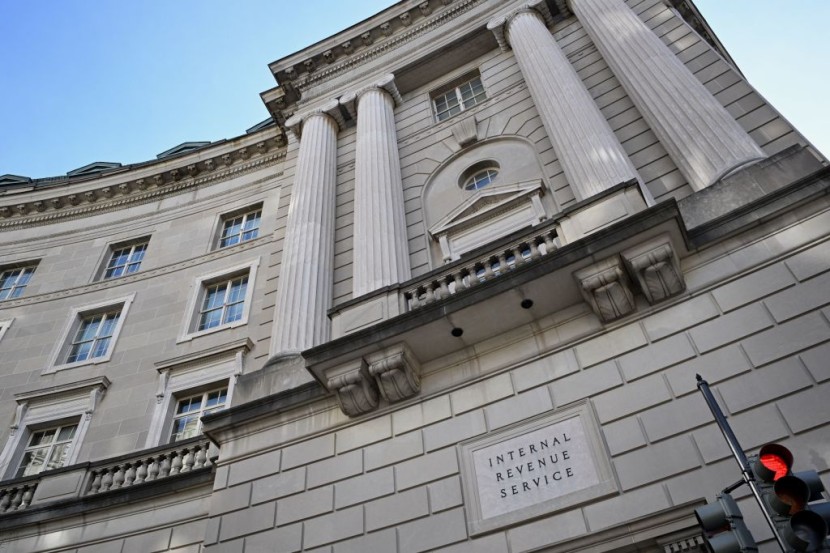
The Internal Revenue Service (IRS) is taking action to crack down on dishonest tax preparers in reaction to a recent Washington Post article that exposed inadequate enforcement against them.
In a letter addressed to the Senate Finance Committee, IRS Commissioner Daniel Werfel announced a renewed effort to crack down on tax preparers who engage in fraudulent activities, according to The Daily Upside.
IRS Vows to Crackdown on Unscrupulous Tax Preparers
This initiative is part of a broader strategy to reallocate audit resources and shift the focus away from low-income taxpayers, particularly those claiming the Earned Income Credit (EIC).
The decision to reduce audits for EIC and other tax benefits for lower-income Americans comes as a response to criticism regarding the disproportionate impact of such audits on poor and Black taxpayers.
Instead, the IRS will focus its auditors on high earners and complex corporate partnerships. Additionally, the agency will intensify efforts to identify and penalize tax preparers suspected of fraud, a rare step that reflects the urgency of addressing this issue.
The IRS would be more proactive in referring tax preparers suspected of fraudulent activity to its criminal investigative division, according to Doug O'Donnell, IRS Deputy Commissioner for Services and Enforcement.
This move signifies a significant departure from previous practices. While over 112,000 individuals have reported fraud or misconduct by tax preparers in the last decade, the IRS has disbarred only a small number each year and suspended fewer than 70.
Moreover, fewer than 10 preparers annually have faced criminal charges for any reason. The IRS plans to support Volunteer Income Tax Assistance programs in low-income neighborhoods to provide a safer alternative for taxpayers seeking assistance with their returns.
These programs offer free tax preparation services, ensuring that individuals have access to reliable assistance without resorting to unscrupulous tax preparers.
The recent announcement marks a reversal of a long-standing trend. For years, the IRS has been reducing audits of high-income individuals and large corporations while continuing to audit EIC claimants, who are typically low-income.
The change in strategy will be funded by the Inflation Reduction Act, which injects additional funding into the IRS, enabling the agency to hire more auditors who can dedicate the time needed for complex audits that result in higher tax collections.
Senate Finance Committee Chair Ron Wyden, a Democrat from Oregon, commended the shift in focus.
He highlighted the importance of Congress's decision to increase IRS funding, stating that it was aimed at overhauling the agency's approach to tax enforcement and eliminating racial bias from its audit selection methods.
Wyden expressed his commitment to ensuring that these changes are effectively implemented.
While the IRS did not provide specific figures regarding the reduction in audits for low-income taxpayers, it stated that the reduction would be substantial, as per The Washington Post via MSN.
Prioritizing Tax Credits Vital to Low-Income Families
Commissioner Werfel's letter intended to decrease audits for those claiming credits such as the Earned Income Credit, the American Opportunity Tax Credit for higher education, the Health Insurance Premium Tax Credit for low-income health insurance customers, and the Additional Child Tax Credit for parents.
The Earned Income Credit and the Child Tax Credit play a crucial role in the annual budgets of many low-income families and serve as substantial sources of government aid to the less privileged.
However, concerns about fraudulent claims and efforts to combat fraud have plagued the Earned Income Credit program for years, with some arguing that these measures disproportionately affect Black taxpayers. Commissioner Werfel acknowledged that the current focus on auditing EIC claimants has led to a disproportionate auditing of Black taxpayers compared to other groups.
The shift in auditing priorities aims to address this disparity and ensure a more equitable approach to tax enforcement. Moving forward, a significant portion of the IRS's auditing efforts will concentrate on complex corporate partnerships, particularly those with substantial discrepancies between reported assets and recorded balances, which may indicate attempts to hide income from tax authorities.
Furthermore, the agency will expand its efforts to collect tax debts, with a particular focus on individuals owing at least $250,000. In summary, the IRS is embarking on a new strategy to improve tax enforcement by cracking down on fraudulent tax preparers and shifting the focus of audits away from low-income taxpayers.
This change aligns with efforts to address racial disparities in audit rates and enhance tax collection efforts from high earners and complex partnerships. The IRS's commitment to creating a fairer and more efficient tax system is evident in these policy adjustments, Forbes reported.








